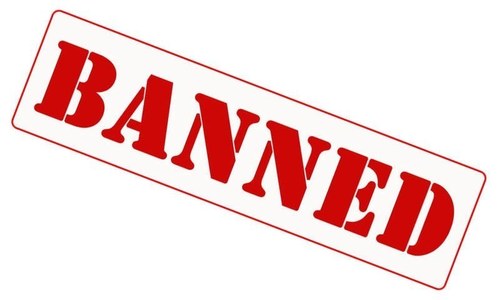ISLAMABAD: The Islamabad High Court (IHC) on Thursday issued notice to the chairman and members of Pakistan Telecommunication Authority (PTA) for not framing rules as provided in the Prevention of Electronic Crimes Act (Peca) 2016.
Awami Workers Party (AWP) filed the petition seeking initiation of contempt proceedings against PTA Chairman Amir Azeem Bajwa and members Mohammad Naveed and Khawar Siddique.
AWP’s counsel adopted before the court that despite directions of the court, the authority had failed to notify the rules.
IHC Chief Justice Athar Minallah in September last year had disposed of AWP’s petition and observed that the PTA cannot block any website without framing rules. The court had issued direction for framing and notifying the rules in three months.
Justice Minallah had also ordered that “the PTA is definitely not empowered to pass an order or take action under Section 37 [of Peca] in derogation of the mandatory requirements of due process.”
In Sept 2019, while disposing of a petition IHC had directed authority to frame rules in three months
Hearing a case related to the blocking of AWP’s website, the order said the PTA had stated in response to the query that Section 37 of Peca empowered it to block websites “without notice or affording an opportunity of hearing to the person who could be adversely affected by an order or action of the authority.”
The order added: “This interpretation of Section 37 is in flagrant violation of the fundamental rights guaranteed under the Constitution as well as the settled law enunciated by the superior courts.”
The court noted that the principles of natural justice were required to be read into every statute. It observed that Article 10A made it mandatory to observe the requirements of due process before passing any order or taking any action whereby persons could be adversely affected.
It was a statutory duty of the PTA to prescribe and notify rules contemplated by the legislature under sub-section (2) of Section 37 of the Act.
“The legislature in its wisdom by using the expression ‘shall’ has manifested its intention that it is mandatory for the authority to prescribe rules for the purposes described under Section 37(2) of the Act of 2016,” it added.
Commenting on the judgement, the AWP counsel Umar Gilani said the decision was likely to become a seminal precedent in cyber law.
“It will hopefully ensure better protection of online speech. Today’s judgment proves that despite everything that is going on, the ideals of constitutionalism are still alive in Pakistan,” he said.
Published in Dawn, March 13th, 2020

















































